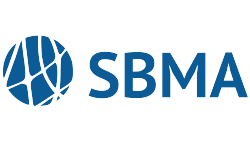There are many options to consider when choosing what coverage you would like to include in your group benefits plan. When considering the purchase of voluntary benefits versus buying group benefits options, you need to understand the advantages and disadvantages of both. Here are a few significant differences that will allow you to make a more informed decision.
Keeping your coverage
With voluntary benefits, you own the policy, meaning it can move transferred and taken with you whether or not you choose to leave your employer. There is no limitation on the age or time of the policy. With group benefits, your policy owner is the employer, and they are responsible for renewing the policy. You could lose coverage if the plan gets canceled or if you choose to leave your employer. With some group policies, there are age limitations, which could include the possibility of losing your benefits at a certain age. The ability to move the plan is limited, and there is a possibility to keep coverage at a reduced benefit, or with a higher premium that may only last 12-36 months.
Premiums/Pricing
The premium for voluntary benefits takes into account your age at the time of purchase, and it does not increase over time. There is no annual renewal process, so you do not have to sign up for these benefits every year. With group benefits, the premiums are step-rated. There are predetermined points in the policy that inform you of when the premiums increase. The rate you receive when you purchase your coverage could only last 2-3 years, and rates are subject to change.
Renewability
Voluntary benefit policies are guaranteed to be renewable, and the carrier can not terminate. As stated above, there is no annual renewal process. With group benefit policies, the employer, who owns the benefits, is required to renew the group benefits policy. The employer also can cancel the policy at any time with a 60-day notice to employees.
Enrollment
Enrolling in voluntary benefits typically involves a one-on-one session with the enroller. You are the primary contact person, and anything to do with the policy goes directly to you. With group benefits information, there are group sessions to inform you about enrollment, but typically you enroll on your own. The employer is the point of contact between the policyholders and you, so those policyholders are usually less engaged with fewer customization options.
These are some considerations to take when looking for policy options. You may not be able to decide whether or not your employer offers group or voluntary benefits; this should help you navigate your policy. Inform yourself about what your policy provides, and you will be better suited to get the coverage necessary for you. Contact us for more information.
Learn more about the differences between voluntary and individual benefits, here.


